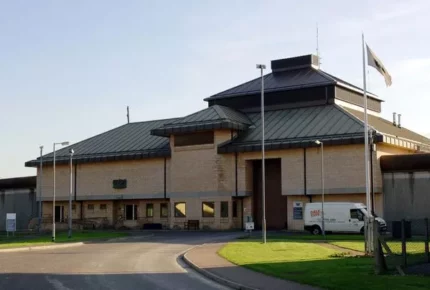

Confronting charges related to child pornography represents one of the most serious and emotionally devastating situations you can face, with the potential to destroy not only your own life but also the lives of those closest to you. The shame, guilt, and terror associated with these allegations can feel insurmountable, leaving you isolated and desperate for guidance on how to navigate the legal system and understand what options might be available to you. This article will explain the various offences that fall under the umbrella of child pornography, detail the sentencing ranges courts can impose, explore the concept of suspended sentences and when they might apply, and provide practical steps you can take to potentially mitigate the consequences you face.
What is child pornography?
Child pornography encompasses a wide range of criminal offences involving the creation, distribution, possession, or facilitation of indecent images or sexual exploitation of children under 18 years of age. These offences are covered by multiple pieces of legislation including the Sexual Offences Act 2003, the Protection of Children Act 1978, and the Coroners and Justice Act 2009, each targeting different aspects of child sexual exploitation.
Under the Sexual Offences Act 2003, relevant offences include arranging or facilitating child sex offences under Section 14, which can carry a maximum sentence of life imprisonment where the intended activity involves serious sexual abuse. Section 10, covering causing or inciting a child to engage in sexual activity, attracts a maximum penalty of 14 years and may apply where children are coerced or manipulated into creating sexual images of themselves.
The Protection of Children Act 1978 specifically criminalises the taking, making, distribution, and possession of indecent photographs of children. “Making” in this context includes downloading images from the internet, with maximum penalties of 10 years for making offences and 5 years for simple possession under the Criminal Justice Act 1988. The Coroners and Justice Act 2009 extends this framework to cover computer-generated or cartoon images depicting children in sexual scenarios, with maximum penalties of 3 years imprisonment.
What are the usual sentences for child pornography offences?
Sentencing for child pornography offences varies significantly depending on the specific charge, the nature and volume of material involved, your role in any distribution network, and numerous other aggravating and mitigating factors, with sentences of several years in prison possible.
For the most serious offences involving arranging or facilitating child sexual abuse, sentences can extend to life imprisonment where the planned activity involves grave harm to very young children. Making offences typically result in sentences ranging from community orders to several years in custody, with starting points determined by the category of images involved and aggravating factors such as commercial gain or network involvement.
The Sentencing Council’s guidelines categorise indecent images into three levels of severity: Category A involves penetrative sexual activity or sadism, Category B covers non-penetrative sexual activity, and Category C encompasses erotic posing and other indecent images. These categories, combined with your role (possession, distribution, or production), determine the starting point for sentencing, with ranges adjusted upwards or downwards based on aggravating and mitigating factors specific to your case.
Courts also consider the volume of images involved, with large collections indicating more serious offending, the duration over which collection occurred, evidence of organisation or categorisation of material, and any attempts to distribute or share images with others. The presence of moving images, the ages of children depicted, and evidence of searches for particular types of material all influence the final sentence imposed.
What is a suspended sentence and how does it work?
A suspended sentence provides courts with a mechanism to impose imprisonment for serious offending while recognising that immediate incarceration might not best serve the interests of justice, rehabilitation, or public protection in your particular circumstances. When imposing a suspended sentence, the judge specifies both the term of imprisonment and the period of suspension, which can extend from six months to two years.
During the suspension period, you remain at liberty in the community but must adhere to any conditions imposed by the court and avoid committing further offences. Successful completion of the suspension period without breach results in the sentence being considered served without any time spent in custody. However, commission of new offences or failure to comply with imposed requirements can result in the suspended sentence being activated, either in whole or in part, alongside any penalty for the fresh offending.
Can child pornography offences result in a suspended sentence?
Child pornography offences can result in suspended sentences in carefully selected cases where the court determines that community-based punishment can adequately address the seriousness of the offending while maintaining public protection.
Factors that may support consideration of a suspended sentence include the offending being at the lower end of the spectrum in terms of both the nature of images and the scale of involvement, clear evidence of mental health difficulties or other personal problems that contributed to the behaviour, genuine expressions of remorse coupled with full cooperation with the investigation, and strong evidence of your commitment to addressing the underlying issues through treatment and support.
The court will also consider whether you present an ongoing risk to children, your willingness to comply with stringent supervision requirements, and the availability of appropriate treatment programmes. Cases involving only possession of limited quantities of less serious category images, with no evidence of distribution or commercial activity, and where you have demonstrated insight into the harm caused by such material, may be considered suitable for suspended sentences.
What factors do courts consider when deciding on a suspended sentence for child pornography offences?
Judicial consideration of suspended sentences in child pornography cases involves meticulous evaluation of competing factors, recognising both the gravity of offences involving child sexual exploitation and the potential for rehabilitation in appropriate circumstances.
- The scale and nature of your involvement in child pornography forms the central consideration, with courts examining the quantity of images involved, the categories of material collected, the period over which collection occurred, and any evidence of organisation, cataloguing, or systematic searching for specific content.
- Your role beyond mere possession attracts particular judicial scrutiny, with any evidence of distribution, sharing with others, commercial gain, or involvement in online communities dedicated to child exploitation making suspended sentences highly unlikely.
- The court undertakes comprehensive risk assessment to determine whether you pose ongoing danger to children, examining factors such as your response to being discovered, willingness to seek help, engagement with treatment services, and insight into the harm caused by child pornography.
- The court also weighs the impact of immediate custody against the potential benefits of allowing you to maintain employment, family relationships, and community support networks that might aid rehabilitation while ensuring adequate supervision and monitoring can be maintained to protect public safety.
How serious do child pornography offences have to be for a prison sentence?
The threshold for immediate imprisonment in child pornography cases is relatively low, reflecting both the serious nature of these offences and society’s determination to protect children from sexual exploitation. Most cases involving significant quantities of material, higher-category images, or any element of distribution will result in immediate custody.
Immediate prison sentences are virtually certain where there is evidence of production or creation of indecent images, distribution or sharing of material with others, commercial exploitation or financial gain from child pornography, involvement in organised networks or online communities, or any connection to contact offending against children. The court recognises that these activities directly contribute to the abuse and exploitation of children and require deterrent sentences.
Cases involving large collections of images, systematic organisation or categorisation of material, evidence of sophisticated technical measures to avoid detection, or targeting of particularly young children also typically result in immediate custody.
What can I do to improve my chances of getting a suspended sentence for child pornography offences?
Maximising your prospects of avoiding immediate custody requires comprehensive and immediate action across multiple areas, recognising that courts approach these cases with extreme caution and require compelling evidence that community-based punishment can adequately address the offending.
- Engaging immediately with specialist psychological or psychiatric assessment to understand the factors that led to your involvement with child pornography provides the foundation for effective mitigation.
- Gathering detailed character evidence from family, employers, and community members who can speak to your positive qualities and contributions helps establish that involvement with child pornography represents aberrant behaviour rather than fundamental character deficiency.
- Preparing comprehensive proposals for supervision, treatment, and monitoring arrangements that could be implemented as part of a suspended sentence demonstrates that effective public protection can be maintained in the community while allowing you to access the treatment and support necessary for rehabilitation.
Where to get more help
Child pornography charges represent some of the most serious allegations in criminal law and require immediate specialist legal representation from solicitors who understand both the technical legal complexities and the human factors involved in these difficult cases. Stuart Miller Solicitors has extensive experience defending clients facing the full range of child pornography offences and recognises the devastating impact these allegations have on individuals and their families. Contact us straight away for a confidential consultation about your next steps.
OUR COMMITMENTS TO YOU:
-
Responsive
A legal expert will consult you within 24 hours of making an enquiry.
-
Empathetic
We will always treat you with trust, understanding and respect.
-
Specialised
Your case will be handled by an expert who specialises in your type of offence.
-
Proactive
We will take early action to end proceedings as soon as it is practically and legally possible to do so.
-
Engaged
You will be kept updated on your case at all times. We will provide a named contact available to answer your questions.
-
Caring
We understand this is a difficult and stressful time for you and your family. Our team will support you every step of the way.
-
Tenacious
We will never give up on your case. We fight tirelessly to get you the best possible outcome.

